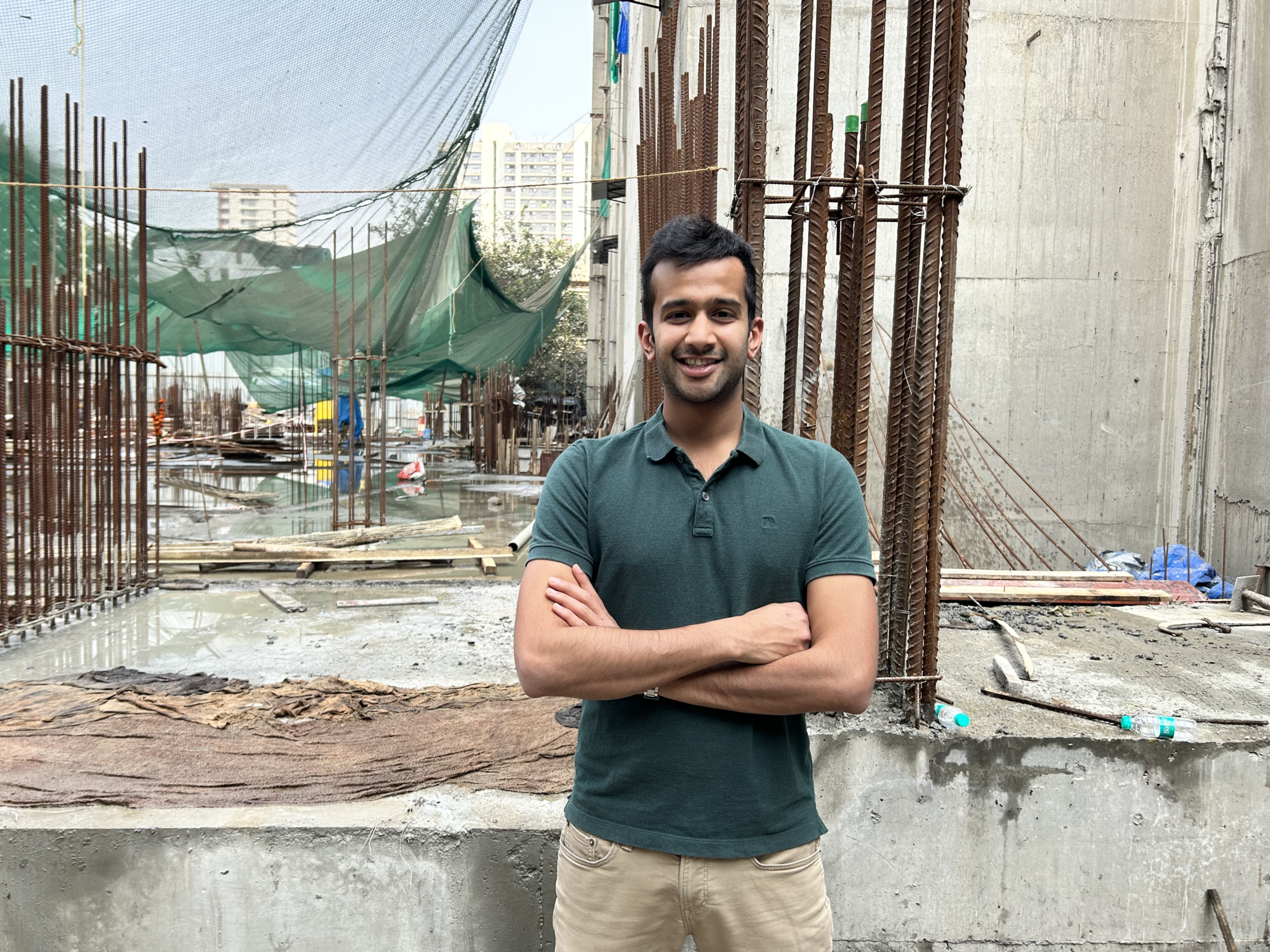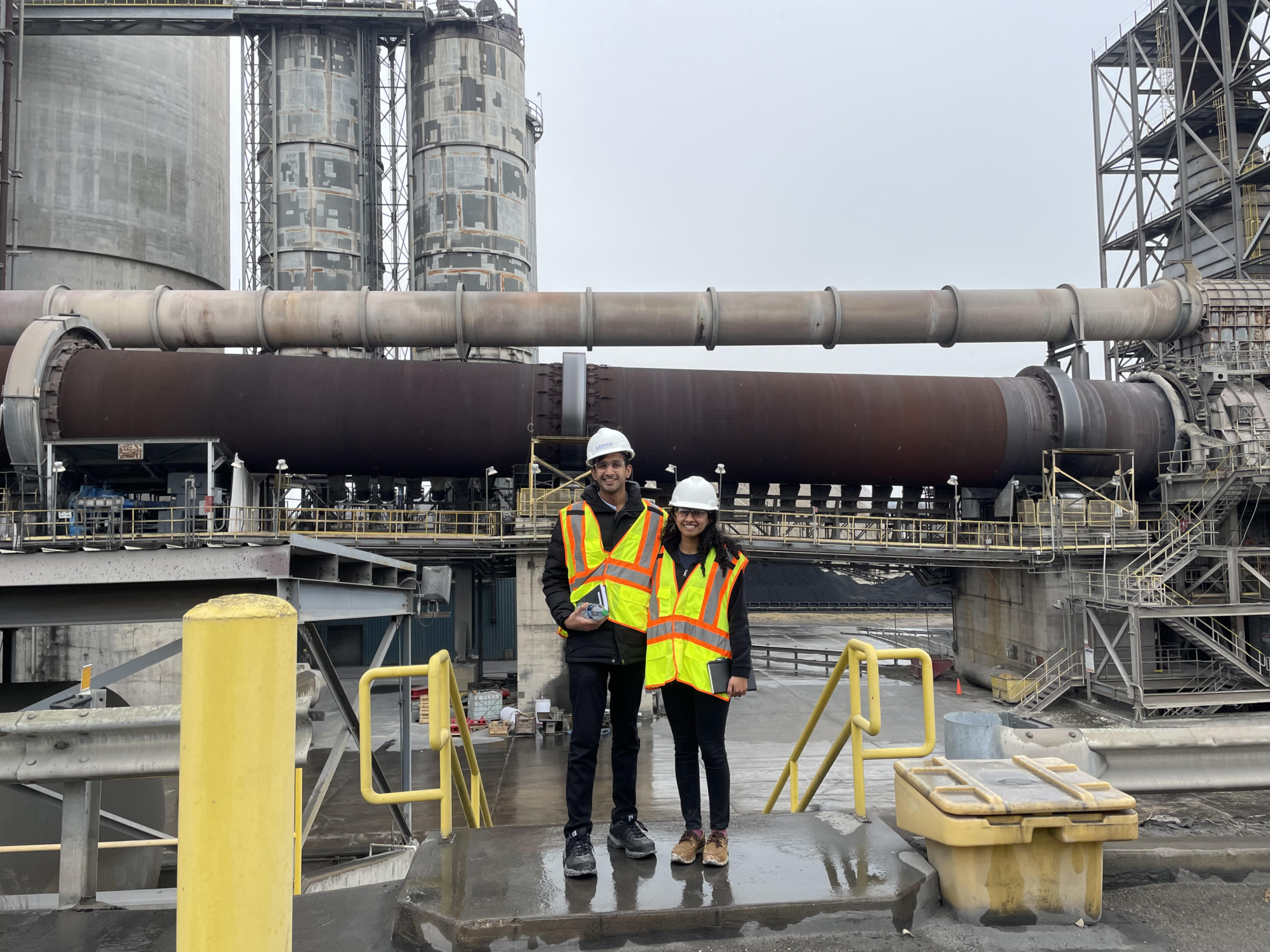Eco-Concrete: Building a Greener Future with Phoenix Materials

Krish Mehta entered the Stanford Graduate School of Business with a clear objective: to launch a startup in the climate sector, focusing particularly on the decarbonization of concrete. Despite his initial lack of specific knowledge about the concrete industry, Krish was aware of its significant environmental impact, contributing to 8% of global CO2 emissions. With this problem in mind, Krish enrolled in Stanford’s Hacking for Climate and Sustainability (now known as Innovation for Impact™ under NobleReach Foundation). This course, recommended by peers, was designed to deep dive into environmental issues and foster innovative solutions. Here, Krish would have the opportunity to learn and practice entrepreneurial methodologies rooted in Lean Launchpad, a process for quickly testing and iterating ideas through customer discovery interviews.
Once enrolled in the course, Krish joined forces with fellow classmates Shilesh Muralidhara (MsX, GSB), Tony Cruz (MS, Sustainability), Manju Murugesu (Ph.D., ERE), and Ayaan Asthana (MS, Sustainability) and formed a team they named “Gremix” to address the concrete problem Krish identified. The rigor of the class offered substantial rewards. The teaching team would let the students know that they would need to conduct over 100 customer discovery interviews over the following quarter, and although this would be more labor intensive than many of their other courses, this customer discovery process would be critical in Krish’s eventual journey to start Phoenix Materials, the startup he spun out of team Gremix.
Team Gremix initially started out with a Minimum Viable Product (MVP) that consisted of a type of cement that required less processing, and thus less emissions. Through their discovery interviews with their future customer base, ready mix concrete makers, they quickly invalidated that idea as it produced a low-quality product that no one wanted. Their first idea was feasible and viable, just not desirable.
The methodology taught us to think first in terms of customers and value proposition, which is usually always second when it comes to CO2 emissions. It’s tempting to go in and say there is a product that has lower emissions and will help the world... but worthless if no one uses it.

Phoenix Materials was born knowing they needed to source more fly-ash. As they continued their research and interviews, they realized that with the shutting down of coal power plants in the US, there was less fly-ash being produced as a byproduct. Phoenix Materials now understood that their challenge is to find a GHG friendly way to source fly-ash.
They knew their customer base, they knew the customers’ pain points, and they now figured out how they are going to address it. Phoenix Materials will go to landfills that contain fly-ash, process it, and extract multiple end products from the refining process, including fly-ash to be sold to ready-mix concrete makers. This refining process does take energy, but it still provides a 15% reduction in GHG emissions when compared to concrete.
Krish notes that, “by understanding the rest of the value chain, we understood the incentives of the rest of our customers. This mapping was extremely important.” Now, Phoenix Materials has a solution to a problem that is feasible, desirable, and viable, that also provided an environmental benefit. Phoenix Materials is looking to raise 2 million dollars in a pre-seed round to build their pilot and accelerate their go to market.